Related Research Articles

The Book of Exodus is the second book of the Bible. It narrates the story of the Exodus, in which the Israelites leave slavery in Biblical Egypt through the strength of Yahweh, who has chosen them as his people. The Israelites then journey with the prophet Moses to Mount Sinai, where Yahweh gives the 10 commandments and they enter into a covenant with Yahweh, who promises to make them a "holy nation, and a kingdom of priests" on condition of their faithfulness. He gives them their laws and instructions to build the Tabernacle, the means by which he will come from heaven and dwell with them and lead them in a holy war to possess the land of Canaan, which had earlier, according to the story of Genesis, been promised to the seed of Abraham.
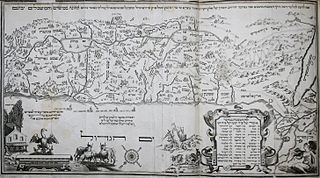
The Israelites were a confederation of Semitic-speaking tribes in the ancient Near East who, during the Iron Age, inhabited a part of Canaan.

The historicity of the Bible is the question of the Bible's relationship to history—covering not just the Bible's acceptability as history but also the ability to understand the literary forms of biblical narrative. One can extend biblical historicity to the evaluation of whether or not the Christian New Testament is an accurate record of the historical Jesus and of the Apostolic Age. This tends to vary depending upon the opinion of the scholar.

William Foxwell Albright was an American archaeologist, biblical scholar, philologist, and expert on ceramics.
Lawrence E. "Larry" Stager was an American archaeologist and academic, specialising in Syro-Palestinian archaeology and Biblical archaeology. He was the Dorot Professor of the Archaeology of Israel in the Department of Near Eastern Languages and Civilizations at Harvard University and was Director of the Harvard Semitic Museum. Beginning in 1985 he oversaw the excavations of the Leon Levy Expedition to Ashkelon, the Philistine port city.

The Plagues of Egypt, in the account of the book of Exodus, are ten disasters inflicted on Biblical Egypt by the God of Israel in order to convince the Pharaoh to allow the Israelites to depart from slavery, each of them confronting Pharaoh and one of his Egyptian gods; they serve as "signs and marvels" given by God to answer Pharaoh's taunt that he does not know Yahweh: "The Egyptians shall know that I am the LORD".

The Ai was a Canaanite city. According to the Book of Joshua in the Hebrew Bible, it was conquered by the Israelites on their second attempt. The ruins of the city are popularly thought to be in the modern-day archeological site Et-Tell.

The Exodus is the founding myth of the Israelites whose narrative is spread over four books of the Torah, namely Exodus, Leviticus, Numbers, and Deuteronomy. The majority of modern scholars date the composition of the Torah to the Middle Persian Period. Some of the traditions contributing to this narrative are older, since allusions to the story are made by 8th-century BCE prophets such as Amos and Hosea. While contemporary scholars no longer treat the narrative as a strictly historical account, debate continues as to the degree to which the narrative corresponds to or conflicts with the historical, archaeological, and geographical records from the period in which it was written.

The Stations of the Exodus are the locations visited by the Israelites following their exodus from Egypt, according to the Hebrew Bible. In the itinerary given in Numbers 33, forty-two stations are listed, although this list differs slightly from the narrative account of the journey found in Exodus and Deuteronomy.
Richard Elliott Friedman is a biblical scholar and the Ann and Jay Davis Professor of Jewish Studies at the University of Georgia.
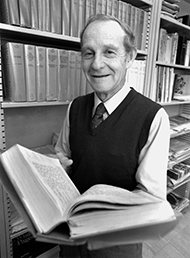
David Noel Freedman was an American biblical scholar, author, editor, archaeologist, and, after his conversion from Judaism, a Presbyterian minister. He was one of the first Americans to work on the Dead Sea Scrolls. He is the son of the writer David Freedman. He died of a heart ailment.
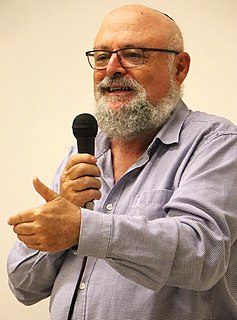
Israel Knohl is an Israeli Bible scholar and historian. He is the Yehezkel Kaufmann Professor of Biblical studies at the Hebrew University of Jerusalem and a Senior Fellow at Shalom Hartman Institute in Jerusalem. His books deal with the integration of scientific and archaeological discoveries with the biblical account, early Israelite beliefs, a survey of Israelite cult, and how and where the Israelites originated.

The Pharaoh's daughter in the story of the finding of Moses in the biblical Book of Exodus is an important, albeit minor, figure in Abrahamic religions. Though some variations of her story exist, the general consensus among Jews, Christians, and Muslims is that she is the adoptive mother of the prophet Moses. Muslims identify her with Asiya, the Great Royal Wife of the pharaoh. In either version, she saved Moses from certain death from both the Nile river and from the Pharaoh. As she ensured the well-being of Moses throughout his early life, she played an essential role in lifting the Hebrew slaves out of bondage in Egypt, their journey to the Promised Land, and the establishment of the Ten Commandments.
William Gwinn Dever is an American archaeologist, Old Testament scholar, and historian, specialized in the history of the Ancient Near East and the ancient kingdoms of Israel and Judah in biblical times. He was Professor of Near Eastern Archaeology and Anthropology at the University of Arizona in Tucson from 1975 to 2002. He is a Distinguished Professor of Near Eastern Archaeology at Lycoming College in Pennsylvania.
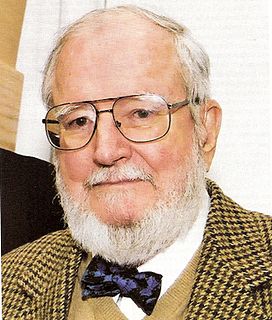
Frank Moore Cross Jr. (1921–2012) was the Hancock Professor of Hebrew and Other Oriental Languages Emeritus at Harvard University, notable for his work in the interpretation of the Dead Sea Scrolls, his 1973 magnum opusCanaanite Myth and Hebrew Epic, and his work in Northwest Semitic epigraphy. Many of his essays on the latter topic have since been collected in Leaves from an Epigrapher's Notebook.
Gerald "Gary" Neil Knoppers was a professor in the Department of Theology at University of Notre Dame. He wrote books and articles regarding a range of Old Testament and ancient Near Eastern topics. He is particularly renowned for his work on 1 Chronicles, writing I Chronicles 1 - 9 and I Chronicles 10 - 29, which together comprise a very significant treatment of the work of the Chronicler. In May 2005 the Canadian Society of Biblical Studies/Societe canadienne des Etudes bibliques granted the R. B. Y. Scott Award to Knoppers for his two-volume Anchor Bible commentary on I Chronicles
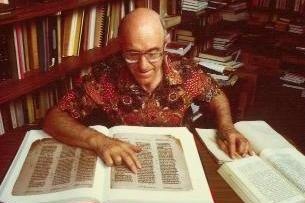
Francis Ian Andersen was an Australian scholar in the fields of biblical studies and Hebrew. Together with A. Dean Forbes, he pioneered the use of computers for the analysis of biblical Hebrew syntax. He taught Old Testament, History, and Religious Studies at various institutions in Australia and the United States, including Macquarie University, the University of Queensland, and Fuller Theological Seminary. His published works include the Tyndale commentary on Job, and Anchor Bible commentaries on Hosea, Amos, Habakkuk and Micah, and over 90 papers.

The Bible makes reference to various pharaohs of Egypt. These include unnamed pharaohs in events described in the Torah, as well as several later named pharaohs, some of whom were historical or can be identified with historical pharaohs.

Gary A. Rendsburg is a professor of biblical studies, Hebrew language, and ancient Judaism at Rutgers University in New Brunswick, New Jersey. He holds the rank of Distinguished Professor and serves as the Blanche and Irving Laurie Chair of Jewish History at Rutgers University (2004–present), with positions in the Department of Jewish Studies and the Department of History.
The Exodus is the founding myth of the Israelites. The scholarly consensus is that there was no Exodus as described in the Bible, even though there may be an historical core behind the Biblical narrative.
References
- 1 2 "Interview with Retiring Professor William H. C. Propp" (PDF). 2018. Retrieved 6 Jan 2022.
- 1 2 "Behind the Lectern: Professor WIlliam Propp – Looking for the Future, Teaching History". UCSD Guardian. 2 Feb 2016. Retrieved 6 January 2022.
- ↑ "William Propp". University of California San Diego. Retrieved 6 January 2022.
- ↑ Levy, Thomas Evan (2016). Historical Biblical Archaeology and the Future: The New Pragmatism. Routledge. p. xiii.
- ↑ Levy, T. E.; Schneider, T.; Propp, W. H. (2015). Israel's Exodus in Transdisciplinary Perspective. Text, Archaeology, Culture, and Geoscience. Cham-Heidelberg-New York: Springer.
- ↑ Lukas, Michael David (18 April 2011). "Sympathy for the Pharaoh". Slate . Retrieved 6 Jan 2022.